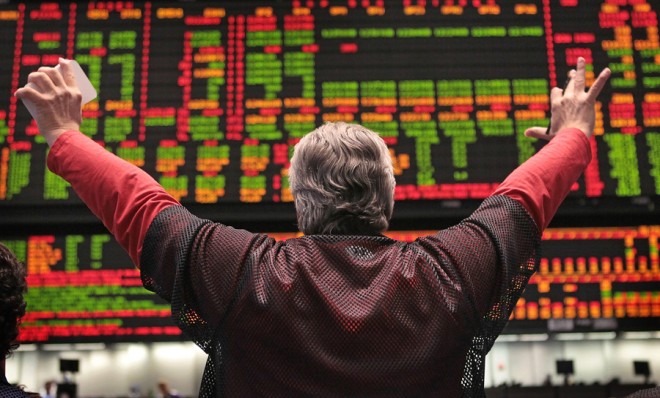Everything you need to know about S&P's alleged ratings gambit
The credit-ratings agency is reportedly giving out easy AAAs — just like it did before the financial crisis

A free daily email with the biggest news stories of the day – and the best features from TheWeek.com
You are now subscribed
Your newsletter sign-up was successful
It's been five years since the financial crisis struck, and credit-ratings agency Standard & Poor's is reportedly back to its old tricks.
S&P is ramping up business by giving higher grades than competitors to certain mortgage-backed securities, says The New York Times, which if true would constitute an eerie replay of the circumstances that led to the financial crisis in the first place. Indeed, S&P is still in the midst of battling a government lawsuit over its alleged improper behavior in the run-up to the crisis.
Here, a refresher course on the role credit-ratings agencies played in the crisis, as well as a guide to the latest accusations:
The Week
Escape your echo chamber. Get the facts behind the news, plus analysis from multiple perspectives.

Sign up for The Week's Free Newsletters
From our morning news briefing to a weekly Good News Newsletter, get the best of The Week delivered directly to your inbox.
From our morning news briefing to a weekly Good News Newsletter, get the best of The Week delivered directly to your inbox.
What do credit-ratings agencies do again?
Among other things, the big three agencies — S&P, Moody's, and Fitch — hand out grades to certain investments measuring their relative risk. Super-safe investments, like government bonds, usually get the highest rating, AAA, with the scale going all the way down to D. The ratings are supposed to be objective assessments of a given investment, but there's plenty of reason to suspect they're not.
How did the agencies help cause the financial crisis?
The problem is that credit-ratings agencies are actually businesses, getting paid by banks to rate their investments. So naturally, banks tend to pick the agency that gives out the easiest AAAs. Leading up to the financial crisis, S&P and others were doling out AAAs — which should signify the investments are essentially foolproof — to extremely risky packages that went kaput when the crisis hit.
A free daily email with the biggest news stories of the day – and the best features from TheWeek.com
Big Bank critic Matt Taibbi of Rolling Stone put it like this:
It's not a stretch to say the whole financial industry revolves around the compass point of the absolutely safe AAA rating. But the financial crisis happened because AAA ratings stopped being something that had to be earned and turned into something that could be paid for.
That this happened is even more amazing because these companies naturally have powerful leverage over their clients, as they are part of a quasi-protected industry that enjoys massive de facto state subsidies. Largely that's because government agencies like the Securities and Exchange Commission often force private companies to fulfill regulatory requirements by retaining or keeping in reserve certain fixed quantities of assets — bonds, securities, whatever — that have been rated highly by a "Nationally Recognized" ratings agency, like the "Big Three" of Moody's, S&P, and Fitch. So while they're not quite part of the official regulatory infrastructure, they might as well be. [Rolling Stone]
Shouldn't ratings agencies use specific, numerical criteria to determine grades?
Yes. Following the financial crisis and the ensuing storm of criticism, S&P tightened up its criteria and started handing out tougher grades. The problem, predictably, was that the agency almost immediately started losing business. In 2011, S&P won the right to grade just 22 percent of the bonds issued that year, compared with 80 percent in 2006 when criteria were more lax, says the The New York Times.
So last summer, S&P again adjusted the criteria it used to rate bonds backed by commercial real estate mortgages — which make up most of the mortgage bond market. The Times says that since the change, S&P has consistently offered higher ratings and won more business.
What does S&P have to say about these sorts of charges?
As BuzzFeed's Andy Meek wrote last month, the firm maintains that its mandate "is to assess credit risk so that investors can make comparisons across products — not necessarily make individual investment decisions."
Carmel Lobello is the business editor at TheWeek.com. Previously, she was an editor at DeathandTaxesMag.com.
-
 6 of the world’s most accessible destinations
6 of the world’s most accessible destinationsThe Week Recommends Experience all of Berlin, Singapore and Sydney
-
 How the FCC’s ‘equal time’ rule works
How the FCC’s ‘equal time’ rule worksIn the Spotlight The law is at the heart of the Colbert-CBS conflict
-
 What is the endgame in the DHS shutdown?
What is the endgame in the DHS shutdown?Today’s Big Question Democrats want to rein in ICE’s immigration crackdown